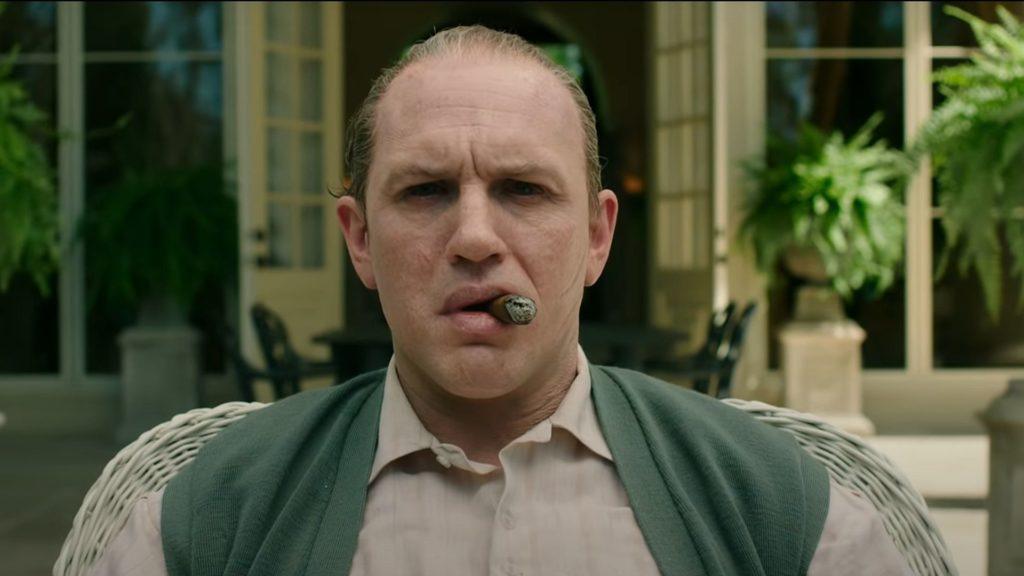Capone

Tom Hardy stars in CAPONE. (Photo: Vertical Entertainment)
When you don’t reference dozens of alleged murders, or his role as one of the most notorious mob bosses in American history, then you might see Al Capone in a more sympathetic light. But you’d be missing the point.
So does the misguided biopic Capone, a speculative chronicle of the last year of his life that muddles the details of his life and legacy. It’s redeemed only somewhat by Tom Hardy’s scenery-chewing performance in the title role.
We’re introduced to Capone at age 47, his health deteriorating from dementia along with his physical and psychological scars. After an early release from prison, he’s been exiled to Florida to live out his final days with his beleaguered wife (Linda Cardellini) and trusted confidants. Also struggling with incontinence and paranoid delusions, a dazed Capone limps around in his pajamas, communicating through bilingual grunting and perpetually chomping on his trademark cigars.
Much of the time, he’s wallowing in his own nightmares, which gradually become darker and more violent as he inches closer to the end. In one such sequence, a gold-plated Tommy gun appropriately figures into the mix. In another extended fantasy, he’s fraternizing with Fats Domino and Judy Garland.
Among the visitors are Capone’s doctor (Kyle MacLachlan) and a former associate (Matt Dillon) who reminisces about their Depression-era exploits. Various estranged family members pop in and out, as does a young FBI agent (Jack Lowden) asking about missing money.
Attempting to probe Capone’s troubled mind, the screenplay by director Josh Trank (Fantastic Four) portrays its subject as a pitifully sad and tragic figure — more of a grumpy old man than a ruthless killer. It doesn’t provide much worthwhile insight, except that he’s haunted by hallucinations regarding his past, and perhaps seeking some sort of spiritual redemption for his misdeeds.
Hardy disappears into his role, thanks mostly to some makeup wizardry and other physical transformations, but also a committed effort to channel Capone’s speech and mannerisms. His array of tormented expressions and erratic outbursts make the material more compelling than it probably should be.
It’s not fair to compare this take to those of Rod Steiger or Robert De Niro or others who’ve played Capone in the past. At this point in his life, he’s simply a different character — and certainly, through no fault of Hardy, a less intriguing one.
Rated R, 104 minutes.